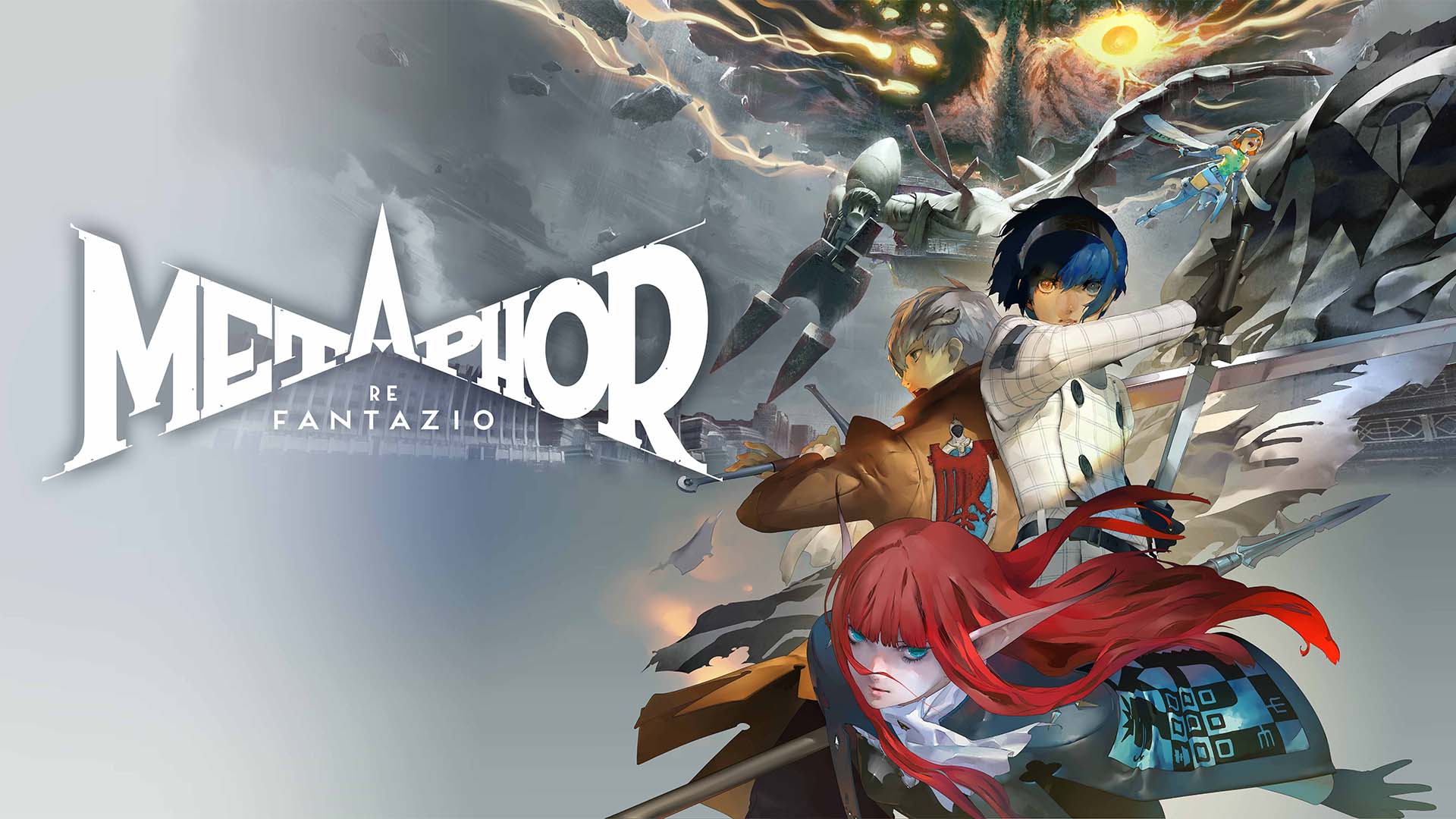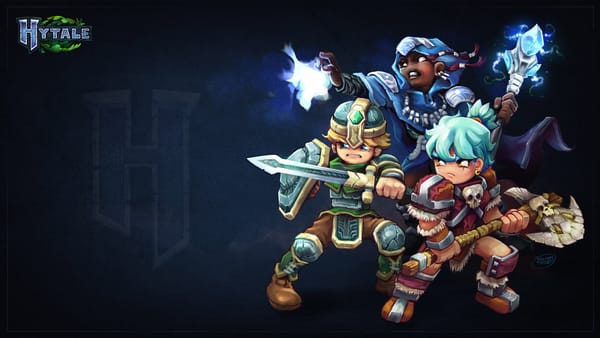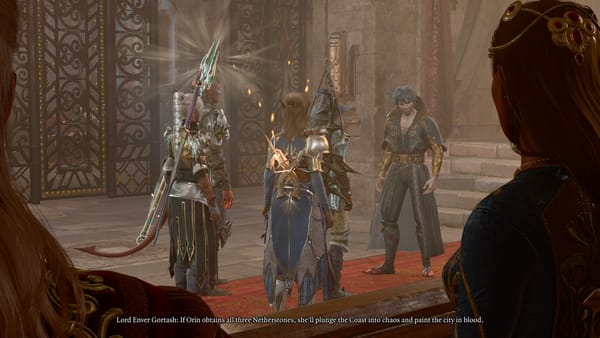The End of Finding Comfort in Non-Cozy Games
After 5 parts of talking about individual games and why I find comfort in them, now I want to end by talking about Comfort Games as a concept.

Finding Comfort in Non-Cozy games is a series about how I, and probably many others, find comfort in games that don't usually qualify as cozy/comfort games. They can be dark, dramatic, filled with some really depressing themes, but if you play them over and over and find comfort in them, they become your own comfort games. This is a multi-part series and this is the last part of it, for now, which is a rather different article so I'd recommend reading the prior parts first before approaching this one, they're linked below, in order.





The Introduction
This entry in the series is very different. If you've read any of the prior articles then you know I typically select a game and talk about how it can be a comfort game. This has been my approach for 5 weeks. It's my longest series of articles I've ever written and it's been rather satisfying to think of a game that is comforting for me and then put it into words.
Well throw all that the fuck out. This entry has nothing to do with individual games. Some might call this my thesis entry, a weird thing since those usually come at the beginning of something instead of at the end (but hey this isn't English class). This time we are instead looking at comfort games as a whole. What it takes to make a comfort game, what the differences are from cozy games, and how knowing any game could be a comfort game should change your outlook on how to approach games in general.
With that, let's get to backbone of my whole point.
What is a Comfort Game?
A comfort game is a game that provides you comfort. It might seem simplistic but it's the core of my argument. Throughout this series I have examined multiple games that have a variety of themes and some that have rather different play-styles between them. I have shown that even the darkest of themes do not mean a game cannot be comfort. I have shown that what matters most is a game you, personally, can sink your teeth into. That you can really let go and just feel absorbed with the world around.
This is what defines a comfort game. In Persona it might be feeling like you can finally have an influence on the world around you. In Mass Effect it might be the ability to finally fight back and win against a universe ending threat. In Cyberpunk it might be being able to feel free from the world around you and truly be able to do whatever you want to, even in the dystopian world the game exists in. In Metaphor it might be that you can finally feel like you can actually work towards a world that has no discrimination. In Civilization it might be that you can decide the destiny of the entire civilization you control and the ones around you.
These possible avenues for comfort all have a core theme to them, being able to influence something, to have power over it. There are many many games that provide you an experience where you are, essentially, just along for the ride on the rollercoaster of the story. But then there are the games that allow you to feel something that you can't feel in real life, at least as an individual. I believe that that is what truly makes a Comfort Game, one that allows you to take the power back, to feel powerful in a way that our modern day world just doesn't allow us to.
So then what is a Comfort Game you ask, again? A Comfort Game is a game that provides you comfort by allowing you to feel powerful in ways we can't (or are incredibly difficult to) in real life.
What are the differences from a Cozy Game?
It is that definition of a Comfort Game that also draws the most direct differences between it's most similar genre name, the Cozy Game genre. In part 1 of this series I lightly touched on what a Cozy game is but now that I have defined what a Comfort Game is, lets compare the two more appropriately.
A Cozy Game provides adorable graphics with more mundane and repetitive tasks (no shade, it's fun for some and that's great!). Whether that be gardening on a set schedule like in Stardew Valley, cleaning up ocean oil spills and waste like in Spilled!, or collecting different creatures and having them help you farm, with the some dance battles in there for good measure, in Ooblets. The Cozy Game genre is defined by wholesome repetition and taking some mechanics from other games and applying a wholesome coat over them to make them more easily digestible. I mean there's an entire direct that I would argue is filled with Cozy Games, the Wholesome Direct, here's the most recent one from this past weekend!
So how then is this different from Comfort Games? These games do provide you with a level of power that isn't easy to have in real life? Is that not the same thing? These are good questions and show that there is some overlap, a Cozy Game is likely a Comfort Game but not all Comfort Games are Cozy Games.
See, a Comfort game has the difference of being able to provide comfort without the wholesome coat of paint. Cyberpunk 2077 is a good example, as I talked about in part 2 it is a dystopian world filled with dark themes, depressing moments, and generally horrible implications to many aspects of its world. Yet, because it provides you the ability to have complete control over your life and do whatever you wish, it adheres to the Comfort Game definition. While it doesn't adhere to how we view Cozy Games because it is not filled with repetitive mundane activities as the core gameplay loop. Instead you are able to explore a massive open world, see characters that have true depth to them and feel real, experience stories that force you into uncomfortable situations so you can feel powerful in some way. These are not things that could possibly apply to a Cozy Game.
Cozy Games as a genre are a wonderful wholesome filled genre that allows us, the player, to really sink into the repetitive mundane of it. I applaud all those who enjoy and make those genres of games. What I am saying is that most Comfort games are, to make a long story short, a different beast entirely.
How might this influence you.
So lets take a step back now. I've defined a Comfort Game, and talked about how it can differ (even if there is some overlap) from Cozy Games. But why does any of this matter? Why should you, the reader, even fucking care what I'm saying?
You should care because, when you start to view any game as a possible comfort game, it can really let you relax and just enjoy games far more than having to have everything be perfect. The modern gaming community is very, very judgey. It is filled with people shitting on games and saying that some are absolutely awful and then the developers are flooded with death threats. I believe that if we simply took a breath, if we simply reexamined how we approached looking at games in general, this environment could improve.
People shit on games they don't like for a variety of reasons. Sometimes it's simply because they were disappointed in them, sometimes it's because they're "anti-woke" assholes who can't stand seeing someone different from them, sometimes it's just because they hate the developer and want to see them fail. But should we really be shitting on games? Shouldn't we simply take games as they are? Understand that they might not have been what we wanted but we need to judge them on what's in front of us instead of what was in our head before we played them?
If we put down the pitchforks, and accepted that sometimes we just won't like a game and that's okay, the industry would be so much healthier. If we looked at each game as a possible Comfort Game for someone out there, some might be more willing to let some of their disappointment go and move on. Why shit on a game that others might find comfort in? Is it not supremely shitty to try and say that a game that people find comfort in is actually a horrible game that should lead to the destruction of the company and is deserving of death threats?

Okay, an important point, this will not work for everyone. Some people are just going to be shitty for whatever reason. But you, reader. You might be able to reexamine how you approach games. You might be able to rethink if you should be shitting on a game. You might be able to be more understanding of people liking a game you didn't because it is their Comfort Game. You might be able to take a step back from a game you hate, understand that it's just not for you, appreciate that some people still enjoy it, and then move on.
The Conclusion
Comfort Games are something that everyone has. We as an industry need to be open to the idea that even the most destructive and dark games can actually be comforting to someone. Every person is different and finds comfort in different ways. Some find comfort in exploring themes that they have had to deal with in their day to day life, like dealing with a death of someone you know and finding comfort in Persona 3 because it allows you to probe that theme in a safe way. Some find comfort in being someone completely different as a way of exercising their dark side but in a much more confined and contained way that is also completely acceptable like might happen in Baldur's Gate 3. Some find comfort in getting frustrated a ton in a Soulsborne game because it's a form of learning to tolerate frustration in a healthy way. We all find comfort in our own way and one of the beautiful things about the games industry is that there is a game out there that will be able to provide us the comfort, a game that you might not have expected to provide that comfort.
Comfort Games are important to the industry, they're important to understanding the players who play through games 100s of times, they're important for being able to approach development in a way that explores themes that might provide comfort to a player who just happens to be going through something similar. Comfort Games are the industries backbone and they always will be.
P.S.
This series has been a long project that I had been toying with for a long time. It was initially planned as a single article but I am truly glad I was able to separate it out into what it has become. This is the last current entry into the series. I intend on, eventually, doing more but they'll be spread out, less attached to my point of what a Comfort Game is and more just standalone and only when I discover a new game that I believe adheres to the same idea of a Comfort Game. Now, I can get back to my regular type of articles and reviews.
With that, I appreciate you reading all of this, I appreciate you thinking about my points, relating to my experiences with the games that I have featured, and overall, I appreciate your time. Thank you for reading.
Meow,
Cat









